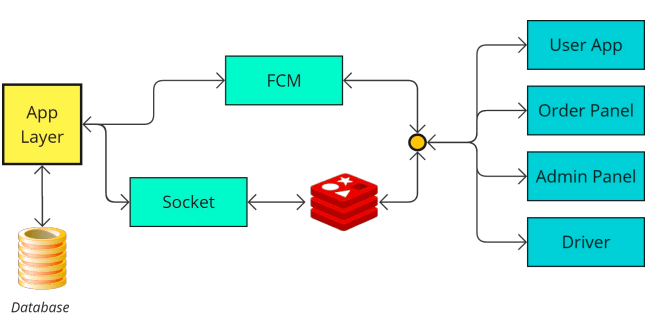Overview
Subscribe to Our Newsletter
Get expert guidance on various topics, resources, and exclusive insights
DevOps as a Catalyst for Growth – A Strategic Approach to Business Continuity and Sustainability
Challenges:
The global pandemic presented a unique set of challenges for one of our business partner,
necessitating a strategic response. With dine-in services no longer viable, we confronted the
immediate need to diversify revenue streams. Simultaneously, resource constraints posed obstacles,
demanding an innovative approach to sustaining income. Recognizing the shifting consumer
landscape, we identified the imperative to integrate a comprehensive delivery module into our
operations. In navigating these challenges, we set a clear objective: to find a solution that not only
required minimal effort estimation but also adhered to stringent cost-effectiveness criteria.
Finalized Solution:
Our solution involved a multi-faceted approach aimed at addressing the diverse challenges we
faced. The transformation of dine-in functionality into an automated feature within our mobile
application was a pivotal step, with meticulous attention given to defining its operation at the
application layer. Embracing a cost-effective paradigm, we opted for the integration of sockets to
facilitate real-time communication. In anticipation of potential disruptions, Firebase was seamlessly
integrated as a reliable fallback solution in the event of socket connection loss. The incorporation of
Redis, serving as a repository for socket states, ensured the resilience and smooth functioning of our
communication infrastructure. For robust and efficient data storage, we leveraged a relational
database management system (RDBMS). Complementing these developments, we introduced a
dedicated web application tailored for order management at outlets, an admin-focused web
application for centralized oversight, and a specialized driver application to streamline the order
delivery process.

Results Achieved:
Our meticulous approach to addressing challenges yielded significant and tangible results. The
implementation of stable sockets, backed by the resilience of Redis, facilitated seamless order
placement and tracking. Rigorous tuning and stress testing of the system contributed to its
scalability, enabling us to efficiently handle concurrent orders based on available computational
resources. Notably, the system demonstrated a remarkable capacity to process thousands of orders
daily, with a peak of over 1500 orders processed in a single day, reflecting its robustness and
reliability.
Conclusion:
Cloud solutions offer advanced analytics and machine learning capabilities, enabling businesses to analyze customer behavior and preferences. Amazon’s recommendation engine is a prime example, using machine learning algorithms to suggest products to customers based on their browsing and purchase history. This personalized approach boosts sales and customer loyalty.

